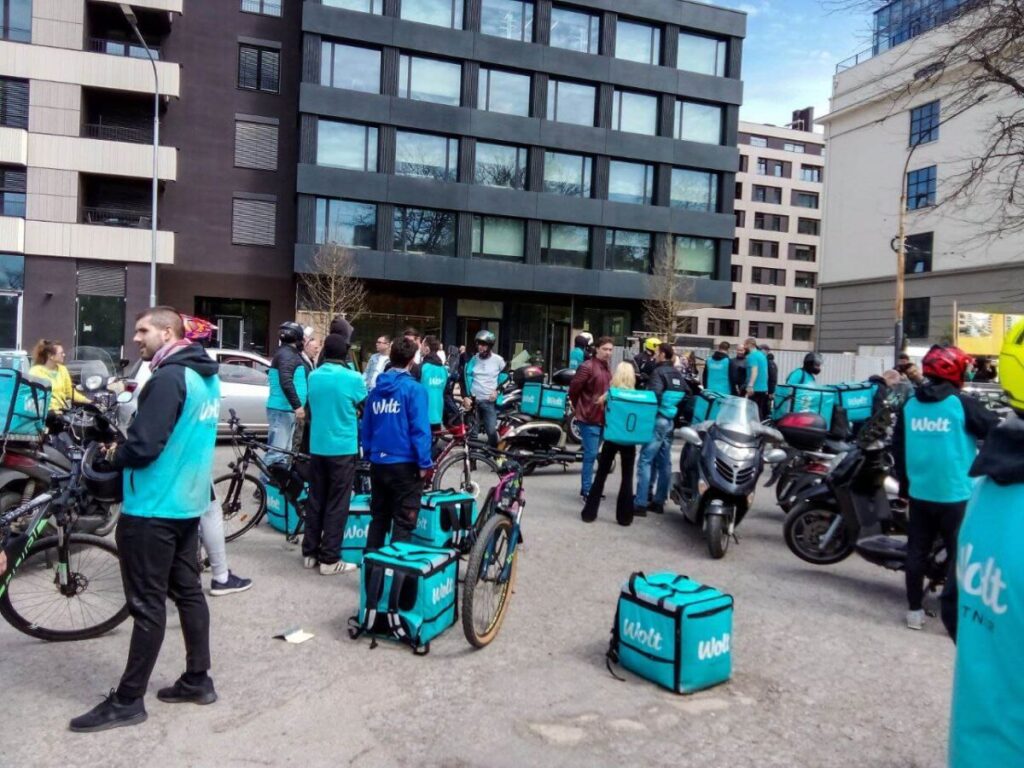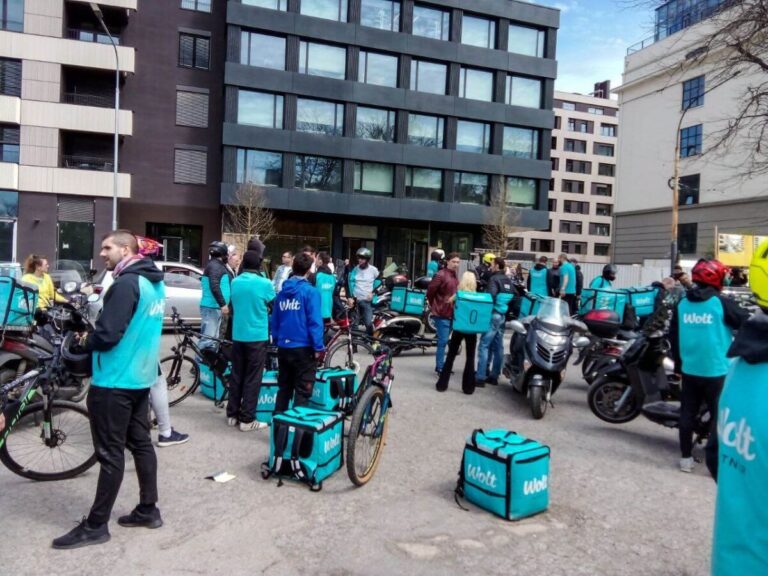According to the claims of Wolt delivery workers, foreigners who started using the platform this year cannot see the details of their earnings on their accounts, nor can they choose which jobs to accept. In this way, foreign workers are placed in an unequal position compared to local delivery workers.
Delivery workers using the Wolt platform typically earn money per delivery, have the flexibility to choose their own hours, and can refuse deliveries at their discretion. However, these privileges no longer extend to foreign workers, predominantly from India. The agencies employing them negotiate contracts that differ from those of local workers. Now, the company Wolt itself directly impacts the earning potential of these delivery workers.
Namely, according to the contracts they sign with intermediary agencies in Serbia, foreign couriers have a fixed salary and working hours, that is, a certain number of working hours when they must be active on the app. They are obliged to accept every delivery that arrives in the app during this time. Local workers can choose the deliveries they want or don’t want to accept, and they have more flexibility in terms of the number of hours spent on the app, i.e. at work.
As the representatives of the agencies that hire foreign workers previously confirmed for Mašina – they have a fixed salary in accordance with their contracts. This salary is generally lower than that of local workers, as agencies incur costs such as accommodation and work permits for foreign workers – costs they try to compensate for by reducing the workers’ wages.
Until recently, foreign workers could also earn more than the contracted amount with the agency. For instance, if they were more active on the app and completed additional deliveries, they would receive a higher payout. In such cases, the agency would compensate by paying them the difference in cash, a practice similar to how part of the salary is paid to local workers.
However, due to recent changes in the Wolt app targeting certain users, particularly foreign workers as we have discovered, only Wolt and the intermediary agencies have access to the workers’ actual earnings. These earnings are paid to the agency, and the workers receive a fixed salary as stipulated in their contracts.
Until the publication of this text, we have not received answers from Wolt.
As you could read earlier on Mašina, companies operating delivery apps often deny the employment status of delivery workers, categorizing them as app users instead. Consequently, legal relationships with the workers are commonly transferred to agencies, which frequently negotiate highly unfavorable contracts with the workers, leading to significant discontent among them.
Now, not only are intermediary agencies discriminating against foreign workers, but the company itself is also engaging in discriminatory practices.
J.V., M.M.




